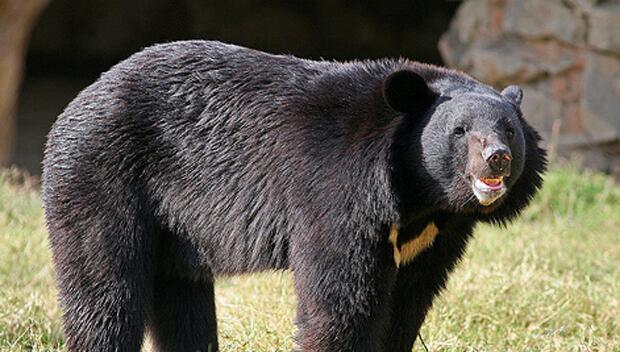She lived in a cramped, rusty steel cage, unable to move or stretch her limbs. Her face covered in scars, and a hole carved into her belly with a surgical tube crudely poking through. The wound leaked a mixture of bile, pus, and blood, which dripped through the tube into a collection sack, and often dripping onto the floor below her cage. This place had been her home since she was captured in the wild and shipped here to have her gallbladder milked daily. The liquids were collected and sold to the bear bile industry, and ultimately used as an ingredient for Chinese medicine and household products.
She was only one of many Asiatic black bears found suffering in January 2012. Their conditions showed years of physical and psychological abuse: some with gnawed-off body parts, others with teeth knocked out or chiseled down to nothing. Many of their bodies had outgrown the cages, were resulting deformed, and bloody, deep wounds from the shackles that kept them immobile. All of them showed infections seeping from their abdomens, and many suffered from organ failure.
After decades of imprisonment on a bear bile farm, these bears had an unusual stroke of luck. On an anonymous tip from the public, their location was shared with Animals Asia Foundation, an advocacy group that works to serve animal welfare throughout Asia. The group promptly arranged to rescue and transport them to their Moon Bear Sanctuary in Chengdu, China, where they received immediate medical care and a peaceful space to recover from years of abuse.
Now they all have names, caretakers who love them, and a pleasant home to live in under the careful watch of professional veterinarians. Each day they receive medical care, and taste the freedom of fresh air and dean water. At the sanctuary, the bears live in dens that open onto a massive enclosure surrounded by bamboo and foliage, with wading ponds,tire swings, toys, and treats. Their bear buddies are there too, and together they romp and play, and slowly heal from a traumatic past They are called “moon bears” for the crescent moon-shaped stripe on their chests, which they proudly wear today as they gently stroll about the property) hunting for tomatoes and strawberries carefully hidden by their caretakers.
Bear bile contains ursodeoxycholic acid, which has become an additive for household products like soap, toothpaste, eye drops, and wine. The ingredient has also been used for centuries in traditional Chinese medicine as a treatment for liver and eye conditions. Yet many Chinese medicine doctors claim that bear bile is unnecessary to treat these conditions, and report that dozens of alternatives exist in well-known herbal remedies. Western medicine also offers alternatives to bear bile. In fact, ursodeoxycholic acid is available in synthetic form, and widely used to treat a variety of ailments. Furthermore, bear bile often comes tainted with pus, blood, bacteria, and other cruel artifacts of the bear bile industry, a nasty cocktail that has caused sickness and death in some cases. The herbal and synthetic version is safe to consume as prescribed, and free of side-effects.
There are visions of hope in this dreary story. The bear bile trade was once accepted and supported by Chinese culture, and this is changing as citizens learn about the torture chambers at the heart of bear bile farming. Animals Asia Foundation is challenging and changing the status quo, and the people are listening. Most recently a group of Chengdu pharmacies agreed to prohibit the sale of bear bile products. Since 2012,nearly 300 drugstores have agreed to stop selling bear bile altogether. These numbers provide evidence that animal activism is growing and the continued advocacy for policy change and consumer awareness is effective.
Today there are still as many as 10,000 moon bears living on bile farms. If you wish to see these bears live a happy life, the best way is to stop buying bear-bile products. Tell your drugstore owner that as a customer, you won’t purchase another item from that store until they prohibit bear bile products entirely. Finally; talk to your friends and family about the cruel and unnecessary violence of the bear bile trade. Educate yourself and your peers, raise awareness and empathy for the Asiatic black bear. They are treasures, and await your dedication to stop bear-bile farming forever.























